 Fifty Shades of Grey
Fifty Shades of Grey
Dir: Sam Taylor-Johnson
Starring: Dakota Johnson, Jamie Dornan, Eloise Mumford, Jennifer Ehle, Marcia Gay Harden, Luke Grimes, and Victor Rasuk
Fairy tale? Sexual awakening? Wish fulfillment? Whatever it may be E.L. James’ bestselling novel “Fifty Shades of Grey” has a devoted following filled with people who love and loathe the sexual charged relationship story. Sam Taylor-Johnson, who directed the adoring John Lennon focused film “Nowhere Boy”, adapts James’ book mostly exact except for a decrease in the extensiveness of sex varieties explained in the novel. However, the film still has near twenty minutes of R-rated sexual content. Though the film starts with promising potential, accommodated by a great performance from Dakota Johnson, “Fifty Shades of Grey” gets lost in the physical sensations and forgets about keeping the character and story compelling and dynamic.
Anastasia Steele (Dakota Johnson), an English major on the verge of graduation, is tasked with conducting an interview for her roommate with a billionaire businessman named Christian Grey (Jamie Dornan). Upon meeting each other they are immediately enamored with one another. Anastasia captivates Christian, he shows up at her work and pretends that it was coincidence. They go out for coffee and the attraction grows, but Christian unexpectedly leaves, telling Anastasia that he’s not the kind of guy she is looking for. They don’t stay apart for long as Anastasia is opened up to Christian’s world of dominating sexuality, one that incorporates contracts and control.
“Fifty Shades of Grey” is focused on sex while also attempting to convey something about the complicated nature of relationships. The problem with this film isn’t the sex, which is dialed way back from the graphic renditions depicted within the pages of the novel, but instead lies within the characters. As the desires of these two people become more complex and complicated so should the characters ambitions and choices. Instead the averting one-dimensional qualities of Christian Grey continue to undermine the growth of the characters and their courtship. Nothing seems to change between the characters, as Anastasia blossoms sexually and Christian guides her into unexplored territory the same scene of the two characters wanting to transition towards the next step is proposed but never taken. Anastasia is left indecisive and conflicted about Christian’s wants. It’s frustrating but understandable considering the film is a trilogy and room needs to be left for further examinations. This aspect of narrative structure keeps the film from being nothing more than a waiting game for visual stimulation, and there is nothing wrong with that. The comic book movie, the horror film, every Michael Bay movie, have long been successful by offering nothing more than a visual experience with little worry about narrative cohesiveness. With a movie released on Valentine’s Day weekend what else would you expect but a little romance, albeit a sensationalized romantic drama with hallmark movie sentiments topped with hard R-rated sexuality.
Dakota Johnson is quite good in the role of Anastasia, her plain yet still attractive appearance and somewhat naïve perspectives accommodate the development of the character. In one of the best scenes Anastasia is talking to her mom and is overcome by the unusual and confusing situation with Christian. Trying to withhold the emotions, a teary eyed Ms. Johnson simply listens and reacts. Unfortunately Jamie Dornan feels miscast. The authoritative and dominating side of the character that is also composed with elements of fear and to an extent pity never feels committed, which renders his mysterious eroticism mute.
While “Fifty Shades of Grey” tries to be a daring examination of sex and gender, it’s unfortunately overly formulaic and conventional. It ruminates from a romantic comedy into a place of melodrama and continues this structure after each sexual encounter. Though there are moments when the director and writer attempt to correlate deeper implications into the nature of sexuality, it is undermined by superficial trappings. Though I wonder if I am being too critical of a film that looks to impose no more than two hours of playfulness in the safety of a movie theatre?
Monte’s Rating
2.00 out of 5.00


 Jupiter Ascending
Jupiter Ascending
 The film’s producer, Mark Stolaroff, represented at PFF 2014, accepting three awards: Best Picture; Best Director – Henry Barrial; and Best Screenplay – Joseph Vasquez (sadly, Vasquez died in 1995, never to see his last screenplay produced).
The film’s producer, Mark Stolaroff, represented at PFF 2014, accepting three awards: Best Picture; Best Director – Henry Barrial; and Best Screenplay – Joseph Vasquez (sadly, Vasquez died in 1995, never to see his last screenplay produced).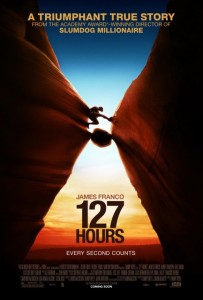
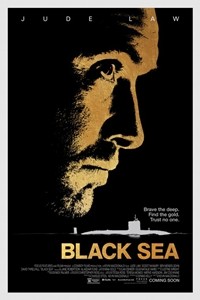 Black Sea
Black Sea
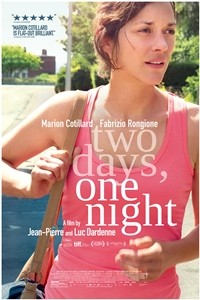 Two Days, One Night
Two Days, One Night
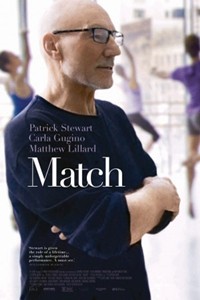 Match
Match
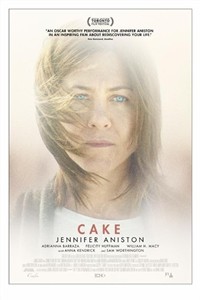 Cake
Cake
 Winter Sleep
Winter Sleep
 The Boy Next Door
The Boy Next Door
 King of Herrings
Dir: Eddie Jemison and Sean Richardson
King of Herrings
Dir: Eddie Jemison and Sean Richardson interesting quality of identifiable people. The leader with a Napoleon complex, the supportive to a fault friend, the peacemaker who keeps everyone calm, the friend who is waiting to take over, the lonely woman on the verge of self-discovery; these characters are all well rendered here. It’s a compliment to the narrative structure, which moves somewhat aimlessly, that these difficult characters remain believable amidst all the underhandedness that transpires. Though it’s easier to accomplish this when you have such a talented cast. Eddie Jemison is in the spotlight and accomplishes the task of becoming a loathsome character in the first few minutes of screen time. This continues throughout as Ditch vehemently muses on aspects of love, sex, marriage, and friendship. It’s comic yet wholly serious, a thin line that displays Jemison’s skill. Joe Chrest does a great job as The Professor, moving from an insufferable smart aleck, to a revenge-seeking degenerate, to a confused suitor; you never know what aspect of the character is genuine if any at all. The best character in the mix comes along unexpectedly in the form of Laura Lamson who plays Ditch’s wife Mary. Her character is mistreated and degraded by Ditch throughout, relinquished to an almost captive state as a lonely woman desperate for escape and the self-esteem to stand up to her husband. Lamson starts off subdued but slowly emerges as the strongest character amidst a group of men whose misguided masculinity in a way becomes their vulnerable limitation.
interesting quality of identifiable people. The leader with a Napoleon complex, the supportive to a fault friend, the peacemaker who keeps everyone calm, the friend who is waiting to take over, the lonely woman on the verge of self-discovery; these characters are all well rendered here. It’s a compliment to the narrative structure, which moves somewhat aimlessly, that these difficult characters remain believable amidst all the underhandedness that transpires. Though it’s easier to accomplish this when you have such a talented cast. Eddie Jemison is in the spotlight and accomplishes the task of becoming a loathsome character in the first few minutes of screen time. This continues throughout as Ditch vehemently muses on aspects of love, sex, marriage, and friendship. It’s comic yet wholly serious, a thin line that displays Jemison’s skill. Joe Chrest does a great job as The Professor, moving from an insufferable smart aleck, to a revenge-seeking degenerate, to a confused suitor; you never know what aspect of the character is genuine if any at all. The best character in the mix comes along unexpectedly in the form of Laura Lamson who plays Ditch’s wife Mary. Her character is mistreated and degraded by Ditch throughout, relinquished to an almost captive state as a lonely woman desperate for escape and the self-esteem to stand up to her husband. Lamson starts off subdued but slowly emerges as the strongest character amidst a group of men whose misguided masculinity in a way becomes their vulnerable limitation. actress Laura Lamson, the actor-director’s real-life wife. Lamson plays Mary, much-better half to Jemison’s Ditch, the wildly offensive leader to his circle of misfits and miscreants. When Ditch pushes his caustic sense of humor a little too far within the group, The Professor (played by Joe Chrest) plans a retaliatory strike by befriending Mary, Ditch’s lonely seamstress wife.
actress Laura Lamson, the actor-director’s real-life wife. Lamson plays Mary, much-better half to Jemison’s Ditch, the wildly offensive leader to his circle of misfits and miscreants. When Ditch pushes his caustic sense of humor a little too far within the group, The Professor (played by Joe Chrest) plans a retaliatory strike by befriending Mary, Ditch’s lonely seamstress wife. Winner of the Breakthrough Filmmakers Award at the 2014 Phoenix Film Festival, King of Herrings releases this
Winner of the Breakthrough Filmmakers Award at the 2014 Phoenix Film Festival, King of Herrings releases this  and Augie (John Mese). They're a ragtag group of friends that always seem to fight over trivial matters in New Orleans. The catalyst for the story involves a debt of nine dollars that's completely asinine in the grand scheme of things, but to these men means everything. It's a semblance of respect and honor that they cannot seem to fulfill that haunts their decisions and leads to increasingly disrespectful actions: adultery, threatening, violence, and anything else that could possibly destroy friendships. The characters aren't relatable in their actions but in their emotions; I cared for the characters when I could see compassion shining through their tomfoolery. Characters need heart and Jemison's film allows them that, even if there are slight bouts of misogyny that pervade the men's decision-making. King of Herrings meanders in the middle as the characters' actions begin to feel a bit strained, but the conclusion is worthwhile and a reminder that comedies must have notes of tragedy or else, well, what are we laughing at?
and Augie (John Mese). They're a ragtag group of friends that always seem to fight over trivial matters in New Orleans. The catalyst for the story involves a debt of nine dollars that's completely asinine in the grand scheme of things, but to these men means everything. It's a semblance of respect and honor that they cannot seem to fulfill that haunts their decisions and leads to increasingly disrespectful actions: adultery, threatening, violence, and anything else that could possibly destroy friendships. The characters aren't relatable in their actions but in their emotions; I cared for the characters when I could see compassion shining through their tomfoolery. Characters need heart and Jemison's film allows them that, even if there are slight bouts of misogyny that pervade the men's decision-making. King of Herrings meanders in the middle as the characters' actions begin to feel a bit strained, but the conclusion is worthwhile and a reminder that comedies must have notes of tragedy or else, well, what are we laughing at? A Most Violent Year
A Most Violent Year
 American Sniper
American Sniper
 Blackhat
Blackhat








